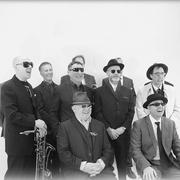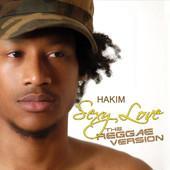Lee Fields
| 基本信息 | |||
|---|---|---|---|
| 姓名 | Lee Fields | 别名 | 暂无 |
| 国籍 | 美国 | 出生地 | |
| 语言 | 性别 | 男 | |
| 生日 | 星座 | ||
| 身高 | 体重 | ||
by Steve HueyLee Fields initially made his name among die-hard funk fans with a series of hard-hitting singles recorded for various small labels during the 70s. Everything about Fields — his look, his vocals, the grooves on his records — was so indebted to James Brown that he earned the nickname Little J.B. Fields never hit it big, but his rough-and-tumble singles went on to become popular collectors items. After a lengthy hiatus, Fields returned in the 90s as a soul-blues belter playing to female-heavy audiences on the Southern circuit. Thanks to sample-obsessed hip-hoppers and British rare-groove aficionados, interest in obscure vintage funk reached a peak in the late 90s, and Fields was fortunate enough to have remained active when new recordings in the style became a viable proposition. Energized by his return to raw, heavy, James Brown-style funk, Fields emerged as the leading light of the so-called deep funk movement with a series of recordings that often equaled, and sometimes outdid, his early work.Fields released his first single on the Bedford label in 1969, Bewildered b/w Tell Her I Love Her. After the 1973 one-off Gonna Make Love on London, Fields caught on at Norfolk Sound; 1973 also saw the release of one of his most enduringly popular 45s, Lets Talk It Over b/w Shes a Love Maker (though it wasnt a big seller at the time). Another prized item was 1975s Everybody Gonna Give Their Thing Away to Somebody (Sometime) b/w East Coast Rapper, issued on SoundPlus. Fields spent most of the latter half of the 70s cutting sides for Angle 3, including perhaps his most sought-after single of all, The Bull Is Coming b/w Funky Screw (credited to Lee Fields & the Devils Personal Band, which only heightened its surface appeal). His last single with Angle 3 came in 1981, by which time hed finally released a full-length album, Lets Talk It Over; naturally, it also went on to become a rare and pricey collectors item.Fields was quiet for most of the 80s, but mounted a comeback in the early 90s, signing with the modern-day incarnation of the Mississippi-based Ace label. Debuting in 1992 with Enough Is Enough, Fields plied his trade on the Southern soul and blues circuit, wearing the glitzy costumes of old and crooning love songs and come-ons to largely female audiences whod never lost their taste for his style of music. Fields also played keyboards and synthesizers on his Ace albums, which included 1995s Coming to Tear the Roof Down and 1996s Dreaming Big Time; he switched to Avanti in 1998 for Its Hard to Go Back After Loving You.By that time, Fields had already hooked up with the New York-based Desco Records, a trailblazing label devoted to releasing new material designed to appeal to old-school funk collectors. Fields guested on one track on the debut album by the labels house band the Soul Providers, 1997s Gimmie the Paw. He subsequently began performing live with the Soul Providers at Descos showcase gigs in New York, and released several limited-edition 45-rpm singles. In 1999, he became the first Desco artist to release a full-length album, the smoking Lets Get a Groove On. Its strict adherence to organic, classic-style James Brown funk — with no synthesizers or drum machines — won admiring reviews and helped put Desco on the map with a hip underground audience that previously never would have paid attention to new Fields material. Desco subsequently broke apart into two labels, Daptone and Soul Fire, and when the dust settled Fields recorded for both of them. He issued two 7 singles on Daptone over 2001-2002 (Give Me a Chance and Shot Down) and then released his next full album, Problems, on Soul Fire in late 2002. Problems again won high praise from the funk community.
 加载评论内容,请稍等......
加载评论内容,请稍等......













